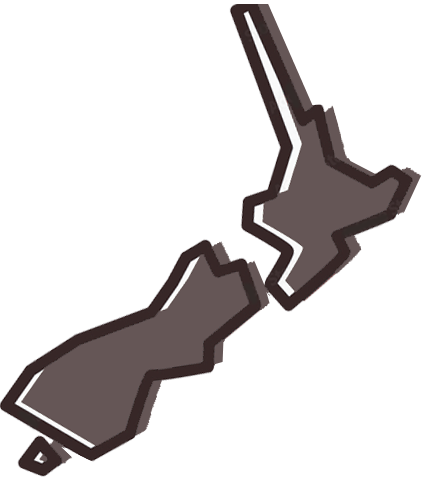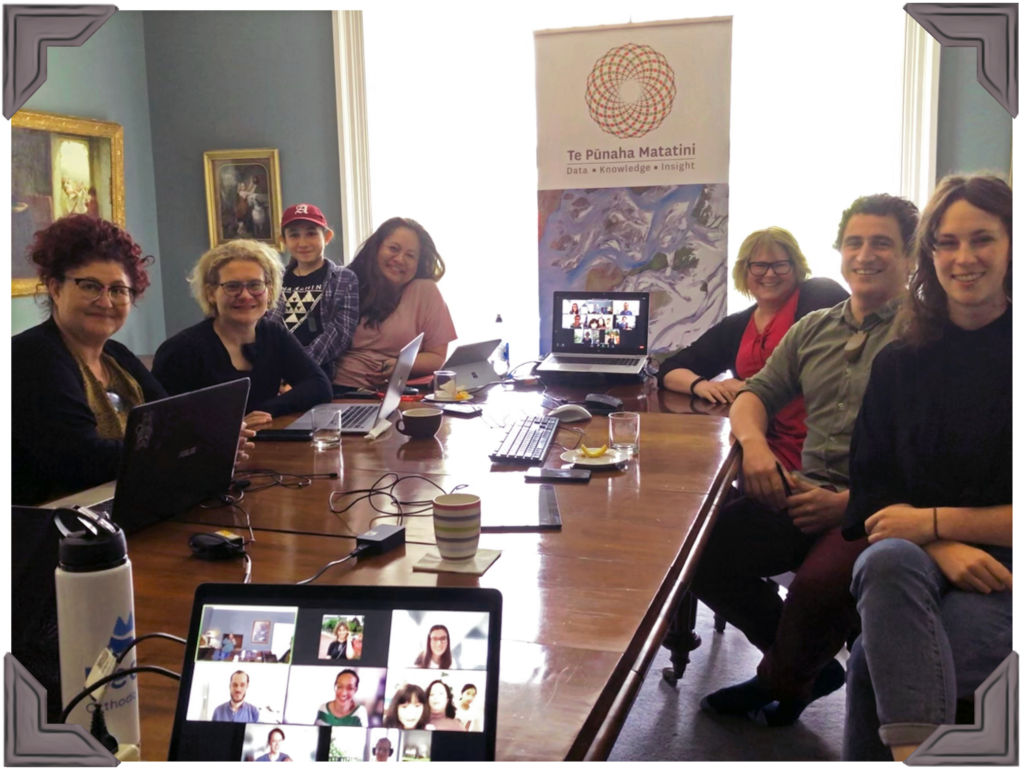
Kindness
in Science
Nau mai haere mai. Welcome.
Kindness in Science is an initiative founded in Aotearoa New Zealand that is focused on building a more inclusive, just, and sustainable science system. The Kindness in Science project draws on collective action and complex systems theory to advocate for a shift away from scientific norms of hypercompetition and individualism toward those which foster kindness, ethical behaviours, and the equitable redistribution of authority and resources. Our long-term focus is to identify the practices and policies that will best enable ‘community-up’ systems change to realise diverse and sustained scientific careers—and scholarship—responsive to societal needs and the wicked challenges of our time.
A Brief History
Kindness in Science began as a Collective of people predominantly based in Aotearoa New Zealand focused on leading a culture shift in the science community that embeds kindness to achieve better outcomes, described in a Nature Careers Feature by Kendall Powell in 2018: “Should we steer clear of the winner-takes-all approach?”.
Following the inaugural workshop in 2017, the Kindness in Science Collective gathered momentum behind the scenes. A second workshop was held in 2021, and the Collective has since transformed into the Kindness in Science project funded by Te Pūnaha Matatini. The Kindness in Science project is exploring transdisciplinary approaches, grounded in feminist geographies, to understand the concept and experiences of kindness in science, and to develop a theory of system change.

Featured Image: The inaugural Kindness in Science Workshop, held at the Fale Pasifika at the University of Auckland in Tāmaki Makaurau Auckland.
First Row: Anna Santure, Dion Pou, Natalie Forsdick, Ngahuia Mita, Kate Hannah, Catherine Febria. Second Row: Laura Armstrong, Jacqueline Beggs, Shaun Hendy, Siouxsie Wiles, Abby Suszko, Cate Macinnis-Ng, Rachel Smith. Third Row: Aleksandra Pawlik, Tara McAllister, Lin Lin, Roshini Peiris-John, Joanne Clapcott, Katie Collins, Tammy Steeves, Stephanie Galla. Fourth Row: Wendy Lawson, Hitaua Arahanga-Doyle, Dan Hikuroa, Cather Simpson, Simon Hills, Cilla Wehi, Anne Gaskett, Sophie Fern, Rob Elshire, Matt Walters. Not pictured: Jamie Ataria.


Featured Image: The second Kindness in Science workshop hosted by Te Pūnaha Matatini, held in Ōtautahi Christchurch.
In person: Channell Thoms, Aleksandra Pawlik, Lisa Warbrick (and her daughter Te Rina Warbrick-Gibbons), Tammy Steeves, Hitaua Arahanga-Doyle, Aisling Rayne. Not pictured: Michael Bartlett. On screen: Jonathan Burgess, Emma Sharp, Bethany Cox, Leilani Walker, Catherine Febria (and her daughters Emilia Oabel and Stella Oabel), Natalie Forsdick. Not pictured: Stephanie Galla.
Acknowledgements
We warmly acknowledge the co-founders of the Kindness in Science Collective for their enduring foresight (in alphabetical order): Catherine Febria, Stephanie Galla, Kate Hannah, Shaun Hendy, Daniel Hikuroa, Aleksandra Pawlik, Tammy Steeves, Cilla Wehi.
We are also eager to acknowledge our colleagues engaged in Kindness in Science, past, present, and future.
We would like to extend our sincere thanks to Te Pūnaha Matatini, Biological Heritage – National Science Challenge, Ngā Pae o te Māramatanga, University of Canterbury, and Genomics for Aotearoa New Zealand for their early support of the Kindness in Science Collective.
We are also grateful to Te Pūnaha Matatini for their continued support for the Kindness in Science project.
Explore Further
Scholars elsewhere have also been exploring the idea of kindness in science in different ways:
“Solidarity, now! Care, Collegiality, and Comprehending the Power Relations of” Academic Kindness” in the Neoliberal Academy” by Sarah Burton, Performance Paradigm, (2021).
“A kinder approach to science“ by Leonardo Almeida-Souza & Lilian O’Brien, Trends in Cell Biology (Science and Society Editorial, 2022).
“What is Kindness in Science and why does it matter?” by Jessica Boulter, Mariana Lizeth Orozco Morales, Nicola Principe & Caitlin Tilsed, Immunology and Cell Biology (Commentary, 2022).
